Introduction
Marketing automation for Ecommerce has become a crucial factor in driving success and staying competitive.
With global e-commerce sales projected to reach $6.3 trillion by 2024, according to Statista, businesses are increasingly turning to ecommerce marketing automation tools to streamline operations and enhance customer experiences.
The adoption of ecommerce marketing automation is on the rise, with a report by Emailmonday revealing that 75% of companies already use at least one type of marketing automation tool.
These technologies, including sophisticated ecommerce chatbots, are revolutionizing how online retailers interact with customers and manage their operations.
Ecommerce marketing automation tools cover a wide range of functions, from personalized email marketing to inventory management and customer service.
According to a study by Nucleus Research, marketing automation drives a 14.5% increase in sales productivity and a 12.2% reduction in marketing overhead.
Furthermore, businesses that use marketing automation for e-commerce experience an average of 451% increase in qualified leads, as reported by The Annuitas Group.
As we delve into innovative strategies for e-commerce marketing automation, we'll explore how these powerful tools, including ecommerce chatbots, are driving efficiency, and delivering personalized experiences that boost customer satisfaction and sales.
So continue reading to know more about it.
14 Innovative Strategies for Ecommerce Marketing Automation
In this section, you'll find the fourteen innovative strategies for Ecommerce marketing automation that will take your business to a new level.
1. Chatbots for Enhanced Customer Service and E-commerce Marketing Automation
Chatbots are transforming customer service and marketing within e-commerce automation.
By deploying AI chatbots across platforms like WhatsApp, Messenger, Instagram, and Shopify, businesses can automate interactions and provide a seamless service experience.
These ecommerce chatbots do more than just answer queries; they act as a comprehensive tool for enhancing engagement and sales.
Chatbots, like BotPenguin, can efficiently handle a multitude of tasks directly on the platform of your business's choice—be it WhatsApp, Messenger, or Instagram—making them incredibly versatile. They can:
Answer Product Queries: Quickly provide information to help customers make buying decisions.
Show Product Catalogs: Display your products interactively, making it easy for customers to browse and select.
Send Product Recommendations: Analyze user behavior and preferences to suggest relevant products.
Payment Gateway Integrations: Facilitate secure and direct payments within the chat interface.
Take Order Confirmation and Send Order Notifications: Confirm purchases and keep customers updated on their order status.
Allow Order Tracking: Enable customers to track their orders in real-time.
Re-target Abandoned Carts: Send reminders for unfinished purchases to boost conversion rates.
Process Returns, Refunds, & Exchanges: Handle post-purchase requests efficiently to enhance customer satisfaction.
Collect Solid Leads: Capture and nurture lead directly through interactive conversations.
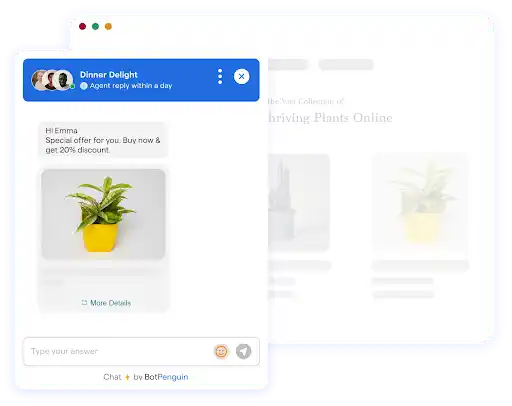
Integrating these functions into your ecommerce marketing automation strategy ensures that your chatbot serves as a robust tool for both customer service and marketing, delivering all updates and messages directly on the customer's preferred platform.
This direct communication streamlines interaction and enhances the customer experience.
2. Zapier for Cross-Application Integration
Zapier stands out by providing a bridge between various business applications, creating a seamless flow of data that eliminates the need for manual entry.
Whether it’s syncing customer information between your CRM and email marketing platforms or automating data transfers between your eCommerce site and inventory management software, Zapier automates these tasks, reducing errors and saving time.
Integrating Zapier helps set up triggers that can, for example, alert your e-commerce chatbot when a customer makes a purchase.
The chatbot can then follow up with order confirmation, tracking updates, or even cross-sell related products based on the purchase—turning routine notifications into marketing opportunities.
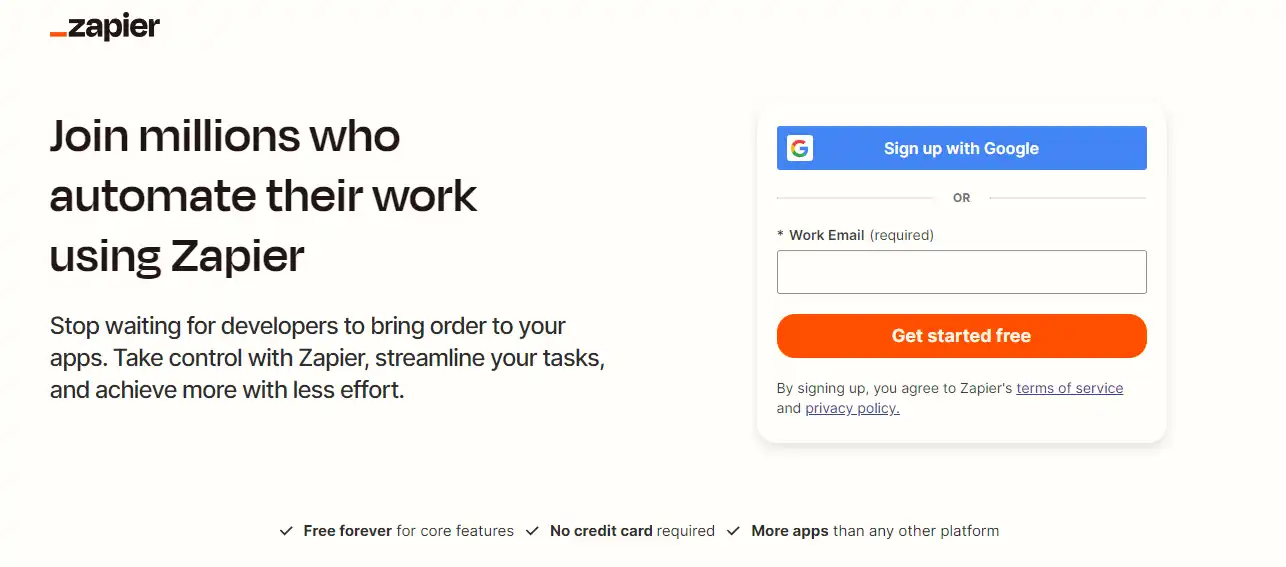
3. Personalized Email Campaigns
Personalization is key in marketing automation for e-commerce.
Through automated email campaigns that utilize customer data to tailor messages according to past behavior and preferences, businesses can significantly increase the relevance and effectiveness of their communications.
Tools like Mailchimp or Klaviyo integrate with your eCommerce platform to automate these campaigns, sending everything from welcome emails to special offers based on customer actions.
An e-commerce chatbot can enhance this strategy by interacting with customers in real-time on platforms like Messenger or Instagram.
They can collect data directly from these interactions, which can be used to further personalize email content, making each communication even more targeted and engaging.
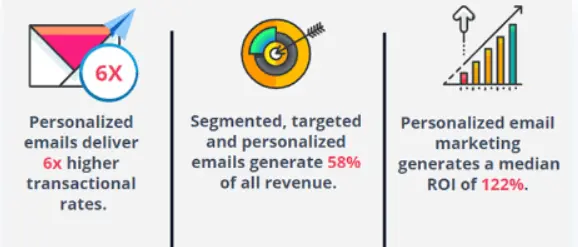
4. Dynamic Pricing Adjustments
Dynamic pricing is a critical strategy for e-commerce automation that adjusts prices in real-time based on variables such as customer demand, inventory levels, and competitor pricing.
Tools like Pricewell or Prisync automate this process, ensuring your pricing strategy remains competitive without constant manual oversight.
E-commerce chatbots support this strategy by providing instant price updates and special offers directly to customers through interactive conversations.
For example, if a customer is viewing a product but not proceeding to checkout, a chatbot can offer a limited-time discount specific to that product, encouraging immediate purchase and potentially increasing conversion rates.
5. AI-Driven Product Recommendations
AI-driven product recommendations stand out by providing a personalized shopping experience that can significantly boost sales.
These systems analyze customer data, including past purchases, browsing history, and search patterns, to suggest products that customers are more likely to buy.
Integrating an e-commerce chatbot can elevate this strategy by interacting directly with customers on platforms like WhatsApp, Messenger, or Instagram.
The chatbots, like BotPenguin, can offer product recommendations conversationally, making suggestions feel more personal and immediate.

For instance, if a customer is looking at a product but hasn't made a purchase, the chatbot can showcase similar items or accessories in a dynamic product catalog, enhancing the likelihood of a sale.
Suggested Reading:
Comparing the Top 7 eCommerce Chatbot Platforms
6. Automated Abandoned Cart Recovery
Abandoned carts are a significant challenge in eCommerce, with many shoppers leaving items in their carts without completing the purchase.
Automated abandoned cart recovery is a critical e-commerce marketing automation strategy that sends reminders to customers about the items they left behind. This strategy often employs emails or push notifications to encourage customers to return and complete their purchases.
By using an e-commerce chatbot, businesses can make this process even more effective.
Chatbots can send instant, personalized reminders via messaging apps, offering incentives like discounts or free shipping to sweeten the deal.
Furthermore, chatbots can answer any questions in real time about the products in the cart, address concerns that may have caused the abandonment, and even process the transaction directly within the chat.
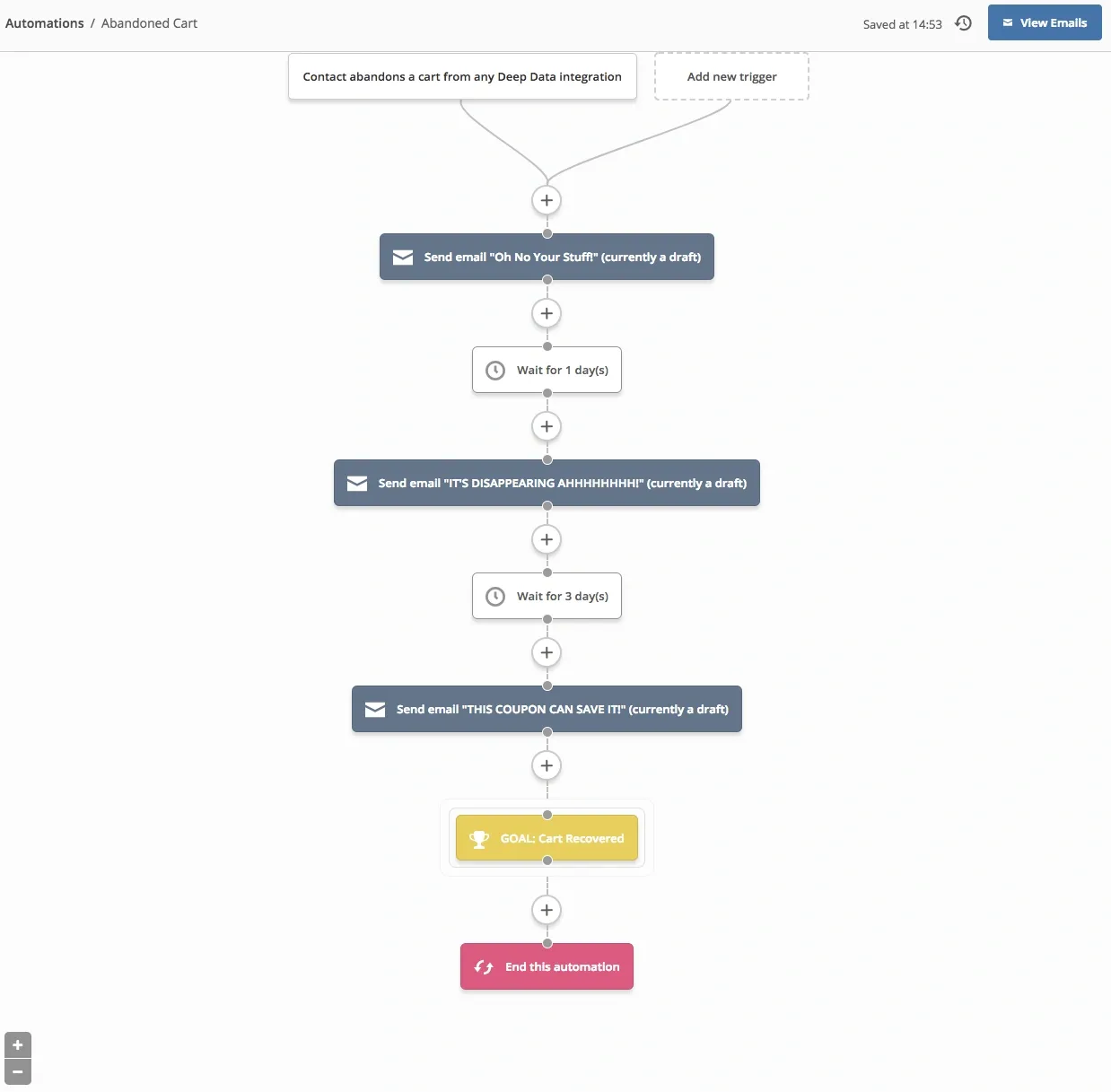
7. Customer Segmentation for Targeted Marketing
Effective ecommerce marketing automation heavily relies on customer segmentation.
This technique divides the customer base into smaller groups based on specific criteria such as demographics, buying behavior, and customer lifecycle.
Tailoring marketing messages to these segmented groups significantly enhances the relevance and effectiveness of campaigns.
E-commerce chatbots play a vital role in this strategy by collecting detailed customer data during interactions. This data enriches the segmentation process, allowing for even more targeted marketing efforts.
For example, a chatbot can determine a customer's preferences and purchasing patterns, which can then be used to segment the customer into a group that receives specific product updates, promotional messages, and personalized offers.
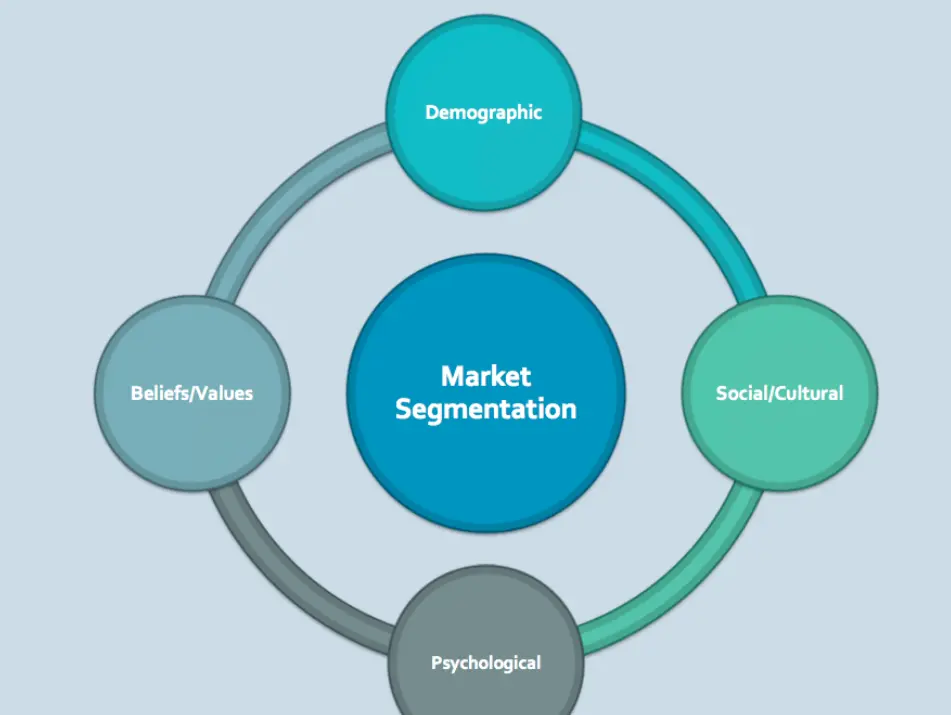
8. Loyalty Programs Management
Loyalty programs are crucial for retaining customers and encouraging repeat purchases.
Ecommerce marketing automation tools can manage these programs more effectively by automating points tallying, rewards redemption, and personalized offers based on customer behavior.
An ecommerce chatbot enhances this automation by interacting with customers in real-time on their preferred platforms, such as WhatsApp, Messenger, or Instagram.
For instance, when a customer makes a purchase, a chatbot can immediately update them on their new points balance and suggest ways to use their points, enhancing the sense of instant gratification.
Additionally, chatbots can notify customers of special loyalty promotions and assist with reward redemptions directly through the chat interface, making the process seamless and user-friendly.
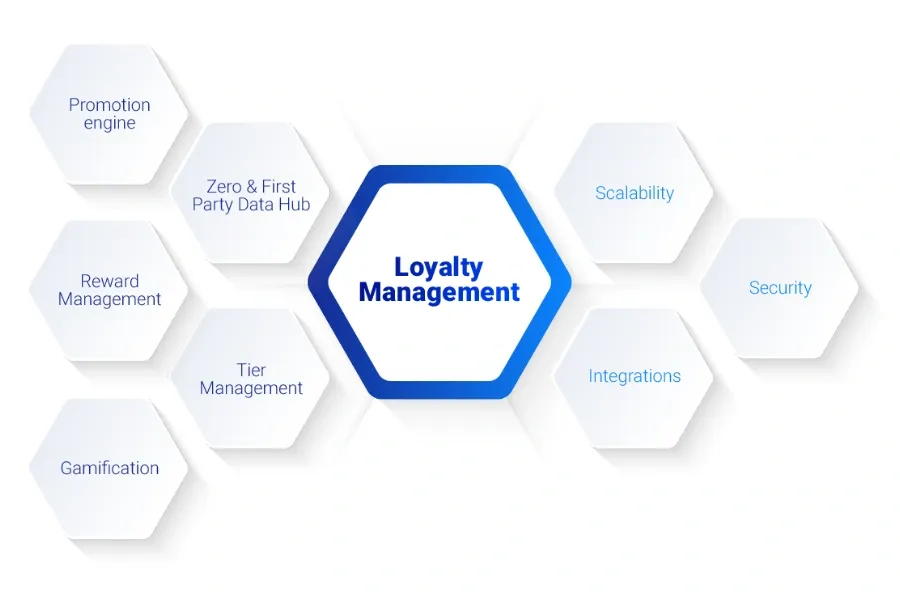
9. Social Media Automation
Social media is a vital channel for engaging with modern consumers, offering them content that can convert passive viewers into active shoppers.
Marketing automation for e-commerce involves using tools like Hootsuite or Buffer to schedule posts, track engagement, and analyze the effectiveness of different strategies across platforms.
Integrating an e-commerce chatbot into social media platforms can significantly augment this automation.
Chatbots can send instant replies to common queries on posts, direct messages, and comments, ensuring that customer interactions are not just timely but also consistent.
They can also push notifications about new posts or products directly to customers, enhancing visibility and engagement.
Moreover, chatbots can collect user feedback and inquiries via social media, funneling valuable insights directly back into the marketing strategy.
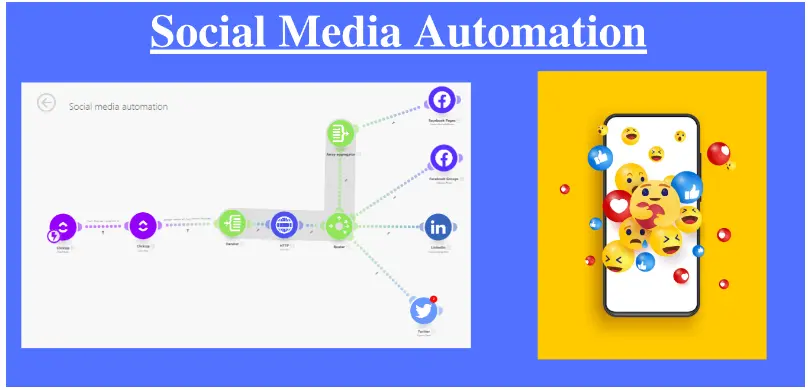
10. Inventory Alerts and Replenishment
Effective inventory management is critical for maintaining the balance between demand and supply.
E-commerce marketing automation tools streamline this process by monitoring stock levels and automatically triggering replenishment orders when stocks fall below predetermined thresholds.
Chatbots can play a crucial role in communicating inventory status to both customers and staff.
For customers, a chatbot can provide real-time updates about product availability, helping manage expectations and potentially guiding them toward alternative products if their desired item is out of stock.
For internal operations, chatbots can alert management and sales teams about low stock levels, ensuring that everyone is informed and can act quickly to replenish supplies or adjust marketing efforts accordingly.
Suggested Reading:
5 ways eCommerce chatbot can enhance your business!
11. Predictive Analytics for Forecasting
Predictive analytics are revolutionizing how businesses anticipate customer behavior and market trends.
By analyzing historical data, these tools forecast future actions, helping businesses tailor their strategies to meet anticipated demands. This capability is particularly useful in managing inventory, planning marketing campaigns, and setting pricing strategies.
While e-commerce chatbots are typically known for their customer service capabilities, they can also collect real-time data from customer interactions.
This data enriches the predictive models by providing up-to-date insights into customer preferences and behaviors, thereby improving the accuracy of forecasts and enabling more dynamic response strategies.
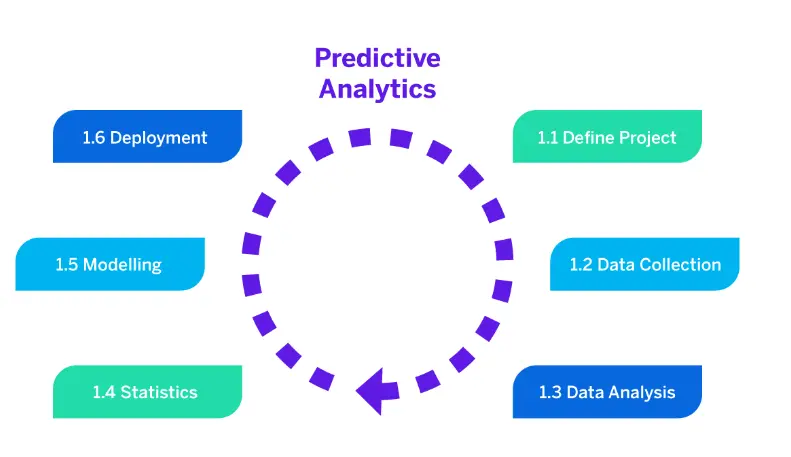
12. Automated Retargeting Campaigns
Automated retargeting campaigns are crucial in recapturing the interest of customers who have interacted with your site but did not make a purchase.
By using cookies and tracking pixels, e-commerce marketing automation tools can display personalized ads to these potential customers on various digital platforms, reminding them of the products they viewed or added to their carts.
An e-commerce chatbot can enhance these campaigns by engaging customers directly through messaging platforms whenever they return to your site or view a retargeted ad.
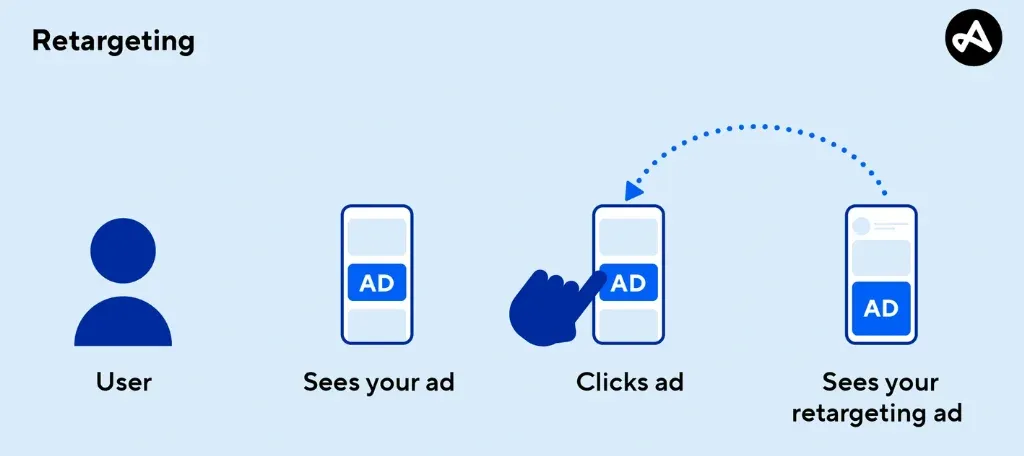
This direct interaction can provide additional incentives like special discounts or answer any lingering product queries, effectively increasing the chances of conversion.
Suggested Reading:
8 Best E-Commerce Chatbots For Your Business
13. Post-Purchase Follow-Up Automation
Post-purchase follow-up is key to maintaining customer relationships and encouraging repeat business.
Automated emails thanking customers, asking for feedback, or offering related products based on their purchase history are standard practices.
Integrating these email campaigns with an e-commerce chatbot allows for a more interactive follow-up experience.
Chatbots can send personalized messages and deal with immediate post-purchase inquiries, such as order confirmation and shipment tracking, directly through customers’ preferred communication channels like WhatsApp, Messenger, or Instagram.
This instant engagement not only enhances customer satisfaction but also opens the door for additional sales opportunities.
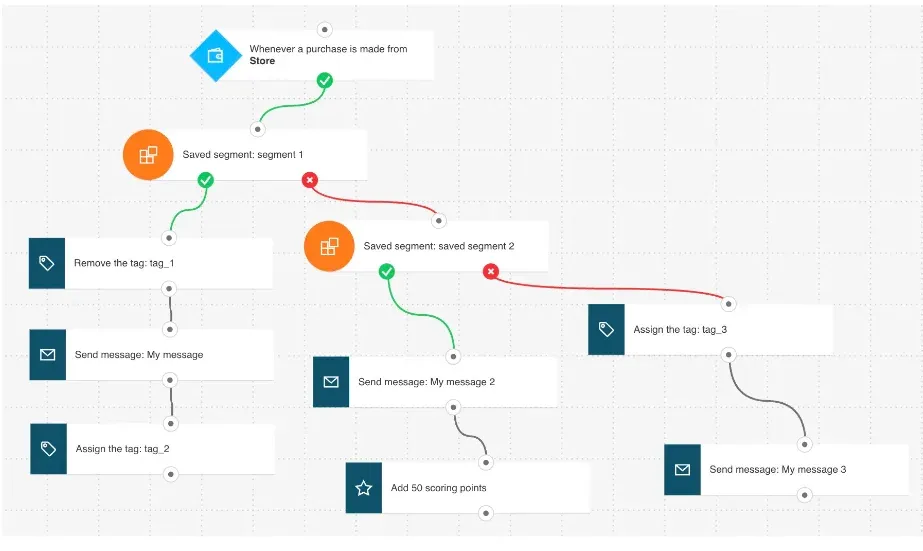
14. Real-Time Analytics for Live Campaign Adjustment
Real-time analytics provide immediate insights into the performance of marketing campaigns, allowing businesses to make on-the-fly adjustments to maximize effectiveness. These adjustments can be crucial during high-stakes periods such as product launches or major sales events.
Ecommerce chatbots contribute to this strategy by serving as frontline sensors of customer sentiment and engagement.
They can immediately report back on customer reactions to campaign elements, offering insights that can be used to tweak campaign messages or offers in real-time.
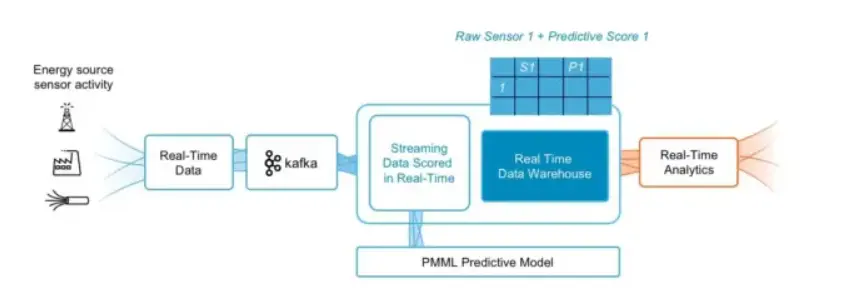
For instance, if a chatbot notices a high rate of queries about a specific deal's terms, the campaign can be quickly adjusted to clarify these points for all customers.
Conclusion
In conclusion, the adoption of ecommerce marketing automation is no longer a luxury but a necessity for businesses aiming to thrive in the competitive online marketplace.
By leveraging innovative e-commerce automation tools, retailers can streamline operations, enhance customer experiences, and drive significant growth.
From personalized email campaigns to sophisticated e-commerce chatbots, these automation strategies are revolutionizing how businesses interact with their customers.
One notable player in this space is BotPenguin, offering cutting-edge e-commerce chatbot solutions that can significantly enhance customer service and engagement.
The key to success lies in selecting the right e-commerce automation tools, like BotPenguin, that align with your specific business needs and customer expectations.
As we've explored, marketing automation for e-commerce offers numerous benefits, including increased efficiency, improved customer engagement, and higher conversion rates.
By implementing these strategies and tools like BotPenguin's chatbots, businesses can create more personalized shopping experiences, reduce cart abandonment, and foster customer loyalty.
E-commerce chatbots, such as those provided by BotPenguin, are poised to become increasingly sophisticated, offering even more human-like interactions and predictive capabilities. Remember, the goal of e-commerce marketing automation is not to replace the human touch but to enhance it.
Suggested Reading:
The Impact of AI and Chatbots in E-commerce Marketing
Frequently Asked Questions (FAQs)
What is ecommerce marketing automation?
Ecommerce marketing automation involves using software to automate marketing processes like email campaigns, customer segmentation, and data analysis to improve efficiency and personalization in e-commerce businesses.
How can chatbots enhance ecommerce marketing automation?
An e-commerce chatbot can handle customer inquiries, show product catalogs, send personalized recommendations, and even facilitate transactions, making them a valuable tool in e-commerce automation.
What are the benefits of using marketing automation for e-commerce?
Marketing automation for e-commerce improves efficiency, reduces manual tasks, enhances customer engagement through personalized communications, and ultimately increases sales and customer loyalty.
What are the best ecommerce automation tools available?
Some of the top e-commerce automation tools include BotPenguin, HubSpot, Mailchimp, Marketo, and Klaviyo, each offering unique features for automating various aspects of e-commerce marketing.


